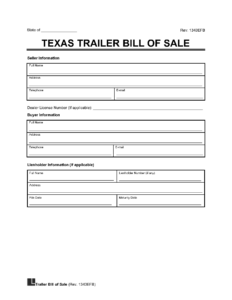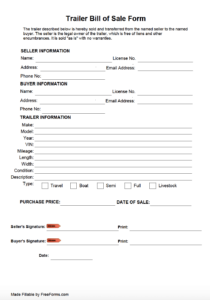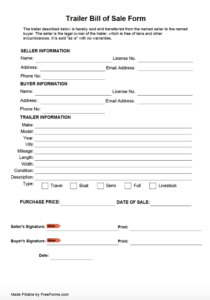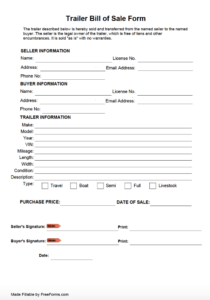When you are looking to buy or sell a trailer, whether it is for hauling goods, recreational use, or even a tiny home project, one of the most crucial pieces of paperwork you will encounter is the bill of sale. This document serves as the official record of the transaction, providing legal proof of ownership transfer from the seller to the buyer. Without it, you could face numerous headaches down the road, from registration issues to disputes over the trailer’s condition.
Navigating the process of creating this important document might seem daunting, but it does not have to be. Utilizing a reliable bill of sale template for a trailer can simplify the entire process significantly. These templates are designed to ensure all necessary legal information is included, protecting both parties involved and ensuring a smooth, transparent exchange. They take the guesswork out of what needs to be recorded, allowing you to focus on the specifics of your transaction.
Why a Bill of Sale is Essential for Your Trailer Transaction
A bill of sale is far more than just a receipt; it is a legally binding document that protects both the buyer and the seller. For the seller, it serves as proof that the trailer has been sold and ownership has been transferred, thereby relieving them of future liability for the trailer. This is particularly important if the trailer is involved in an incident after the sale, or if the new owner incurs fines or violations. It officially marks the end of their responsibility.
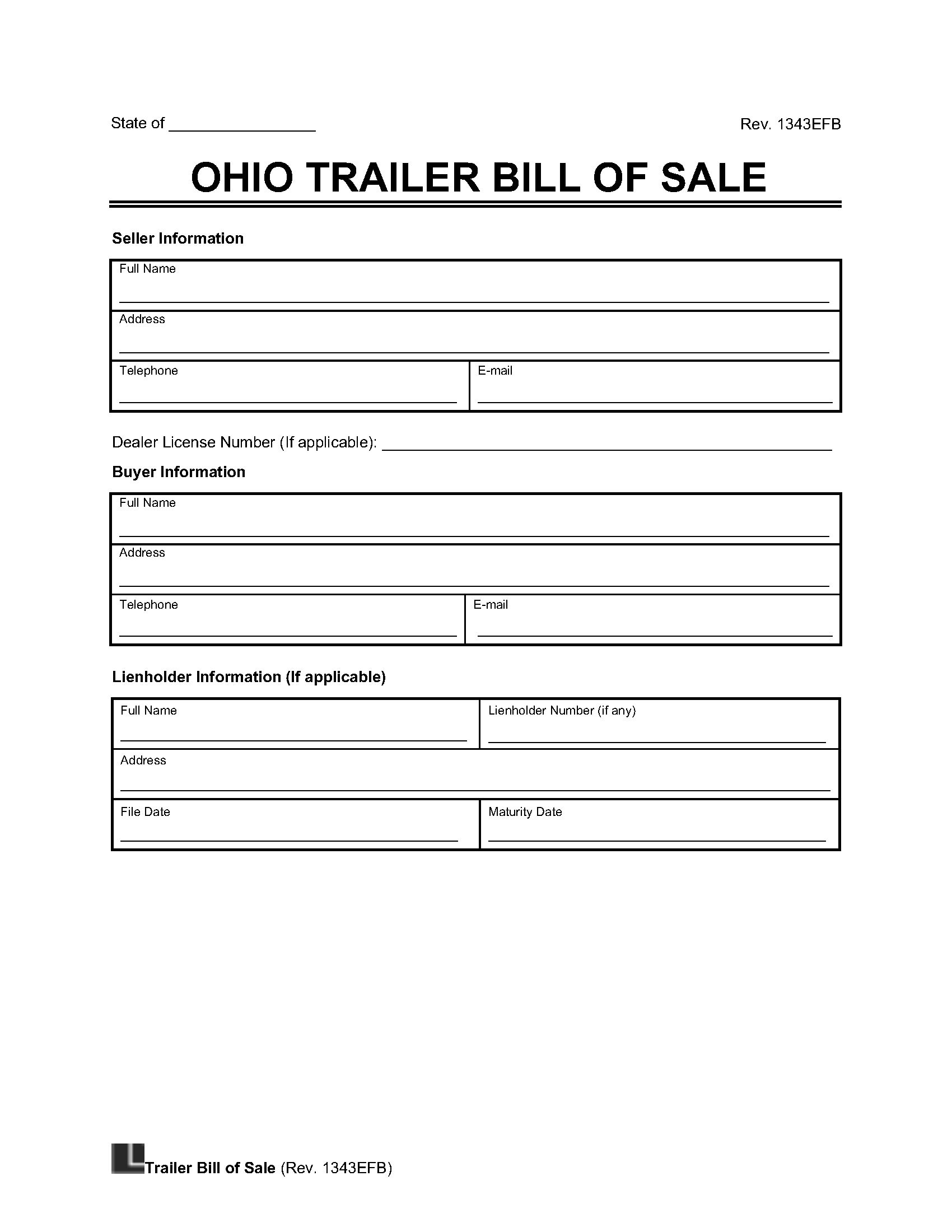
For the buyer, a bill of sale is undeniable proof of purchase and ownership. This document is absolutely vital for several reasons, including registering the trailer with your local Department of Motor Vehicles or equivalent agency, obtaining insurance, and proving legitimate ownership if ever questioned. Without this crucial piece of paper, you might find yourself unable to complete these necessary steps, or even facing challenges if the original owner disputes the sale later on.
What Information Should Your Bill of Sale Include
To be legally sound and fully effective, a bill of sale for a trailer must contain specific information. Ensuring all these details are accurately filled out will prevent potential problems and misunderstandings later on.
- Seller’s full legal name and contact information (address, phone number).
- Buyer’s full legal name and contact information (address, phone number).
- Detailed description of the trailer, including its make, model, year of manufacture, Vehicle Identification Number (VIN), license plate number (if applicable), and color.
- The agreed-upon purchase price of the trailer.
- The exact date of the sale.
- The method of payment used for the transaction.
- A statement indicating the trailer is sold “as-is” or detailing any warranties or guarantees, if applicable.
- Signatures of both the buyer and the seller.
- Optional: Signatures of witnesses and notarization for added legal weight, depending on local regulations or personal preference.
Having all this information documented clearly ensures there is no ambiguity about what was sold, who sold it, who bought it, and for how much. This thoroughness provides peace of mind for everyone involved.
Steps to Using a Bill of Sale Template for Your Trailer
Using a bill of sale template for your trailer transaction significantly streamlines the process, ensuring you do not miss any critical details. It takes away the complexity of drafting a legal document from scratch, providing a clear framework to follow. Most templates are straightforward and user-friendly, allowing you to focus on gathering the necessary information rather than formatting or legal phrasing.
The first step is to select a reputable bill of sale template trailer that suits your needs. You can find these online through various legal resource websites or specific automotive and recreational vehicle platforms. Once you have your chosen template, make sure you understand each section and what information is required. Do not hesitate to read through any instructions provided with the template itself.
Here are the key steps to effectively use a bill of sale template:
- Step 1: Gather All Necessary Information. Before you even begin filling out the template, compile all the required details. This includes the full names and addresses of both the buyer and seller, the trailer’s VIN, make, model, year, and the agreed-upon sale price. Having everything ready beforehand makes the filling process much smoother and faster.
- Step 2: Accurately Fill Out the Template. Carefully input all the gathered information into the corresponding fields on the template. Double-check for any typos or inaccuracies, especially with numerical data like the VIN or purchase price. Ensure the description of the trailer is thorough and matches its actual condition.
- Step 3: Review the Document Thoroughly. Once filled out, both the buyer and the seller should read the entire bill of sale template trailer carefully. Confirm that all terms and conditions are clear, correct, and mutually agreed upon. This is the last chance to catch any discrepancies before signing.
- Step 4: Sign and Date the Document. With everything verified, both the buyer and seller must sign and date the bill of sale. Consider having it notarized if your state requires it or if you want extra legal protection. Notarization adds an extra layer of authenticity to the document.
- Step 5: Make Copies for Both Parties. It is crucial that both the buyer and the seller receive an original, signed copy of the bill of sale. This ensures that each party has their own legal record of the transaction for their records.
Following these steps ensures that your trailer sale is properly documented, protecting both parties and facilitating a smooth transfer of ownership. It removes any potential for dispute down the line, providing clarity and legal standing for your transaction.
Securing a proper bill of sale for your trailer transaction is not merely a formality; it is a fundamental step in protecting your interests and ensuring a seamless transfer of ownership. This document clarifies the terms of the sale, provides crucial proof of ownership, and helps both parties avoid potential legal issues or misunderstandings in the future. It is the cornerstone of a responsible and legally sound transaction.
By taking the time to properly complete and file a bill of sale, you are investing in peace of mind. It allows the buyer to confidently register their new acquisition and the seller to move on without lingering liability. This simple yet powerful document ensures that your trailer buying or selling experience is as straightforward and stress-free as possible.
